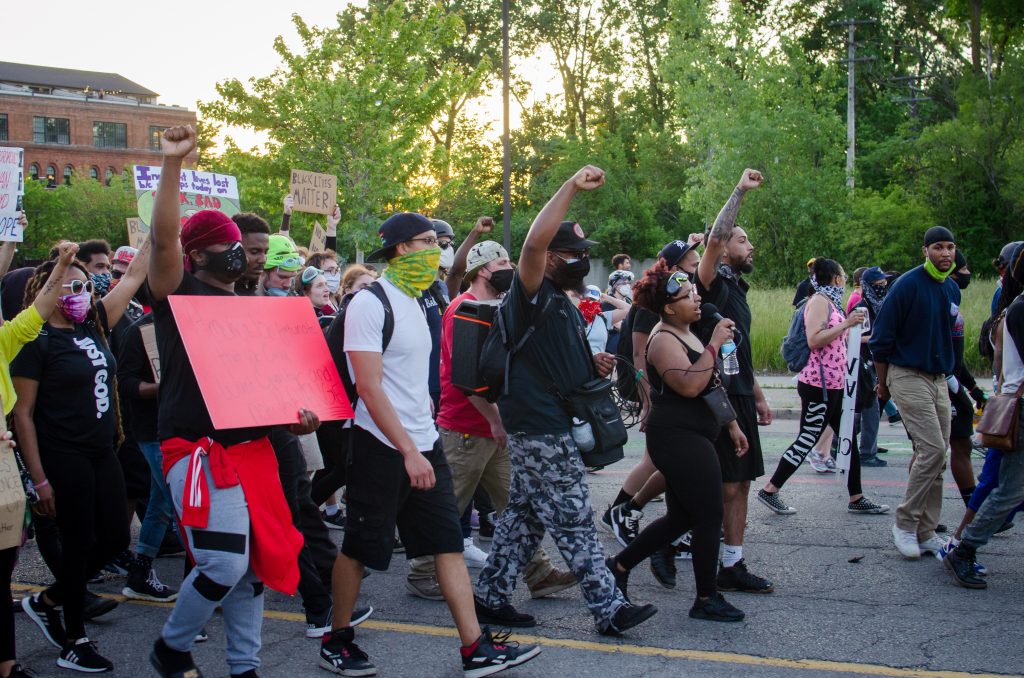Income Inequality, COVID-19 Underlie Detroit Protest Movement
Black communities have been harder hit by the COVID-19 pandemic, shining a light on longstanding disparities and fueling a movement.

The marches against police brutality in Detroit and across the country are set against the backdrop of a global pandemic.
“Black Detroiters are first fired, last hired. Black Detroiters likely won’t recover for much longer.” — Dustin Walsh, Crain’s Detroit Business
The public health crisis has disproportionately impacted African Americans, economically and in health outcomes. Racial economic inequality in places like Detroit have illuminated discussion around disparities amid the ongoing protest movement.
Listen: Jobs numbers show African American Detroiters have been disproportionately impacted by economic downturn.
Guest
Dustin Walsh covers economic issues for Crain’s Detroit Business and wrote a piece this week about income inequality in the time of COVID-19.
He says the COVID-19 induced recession has highlighted underlying racial economic disparities in Detroit and across the country.
“Black Detroiters are first fired, last hired. Black Detroiters have taken a much larger hit than their white counterparts, and likely won’t recover for much longer,” says Walsh.
He adds that as national May jobs numbers showed overall improvements, unemployment rates among African Americans remain unmoved. Walsh says places like Detroit are still being impacted by prejudicial policies. Discriminatory housing and hiring practices have long been an issue in the city and contribute to the economic inequality being witnessed today.
Trusted, accurate, up-to-date
WDET is here to keep you informed on essential information, news and resources related to COVID-19.
This is a stressful, insecure time for many. So it’s more important than ever for you, our listeners and readers, who are able to donate to keep supporting WDET’s mission. Please make a gift today.
